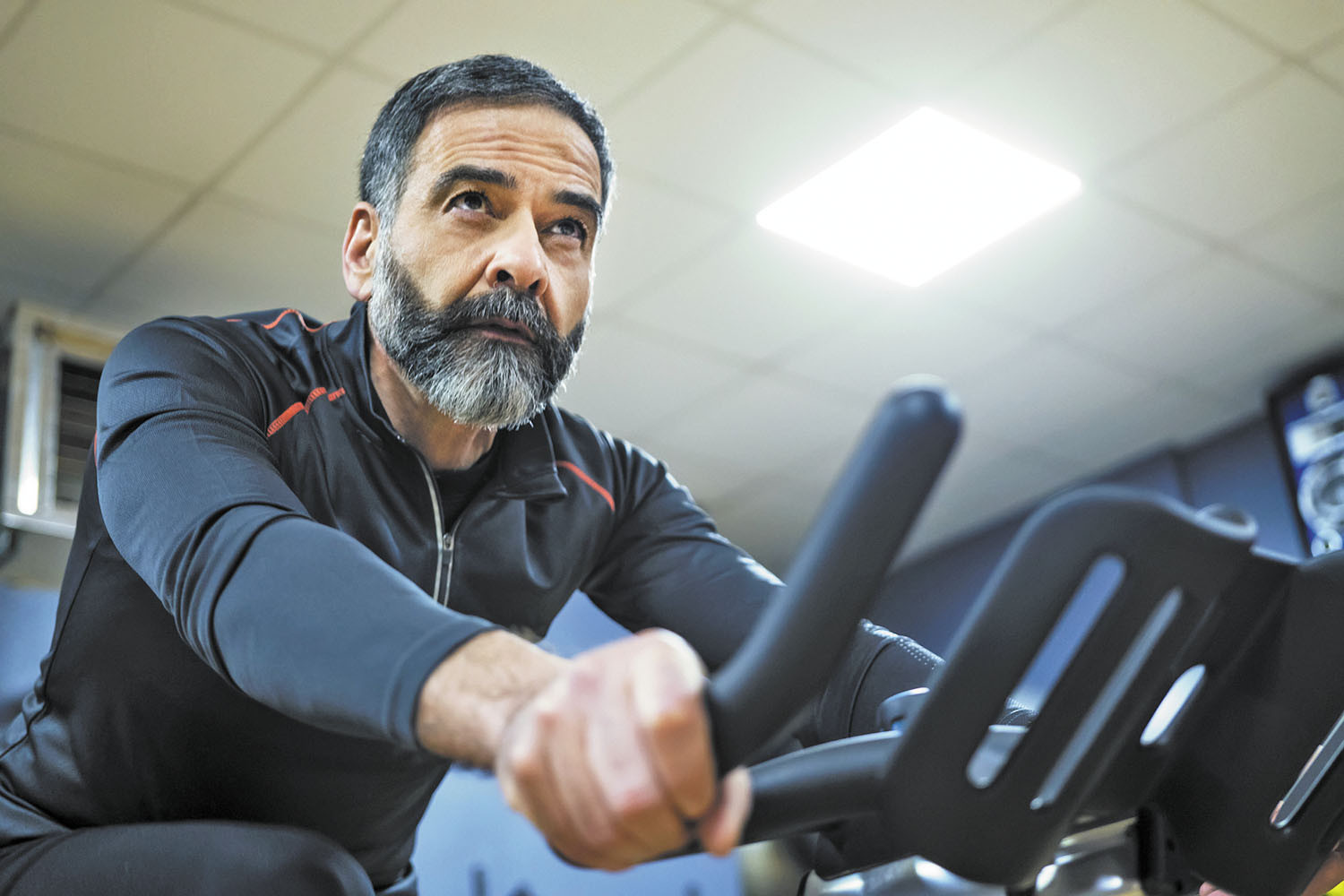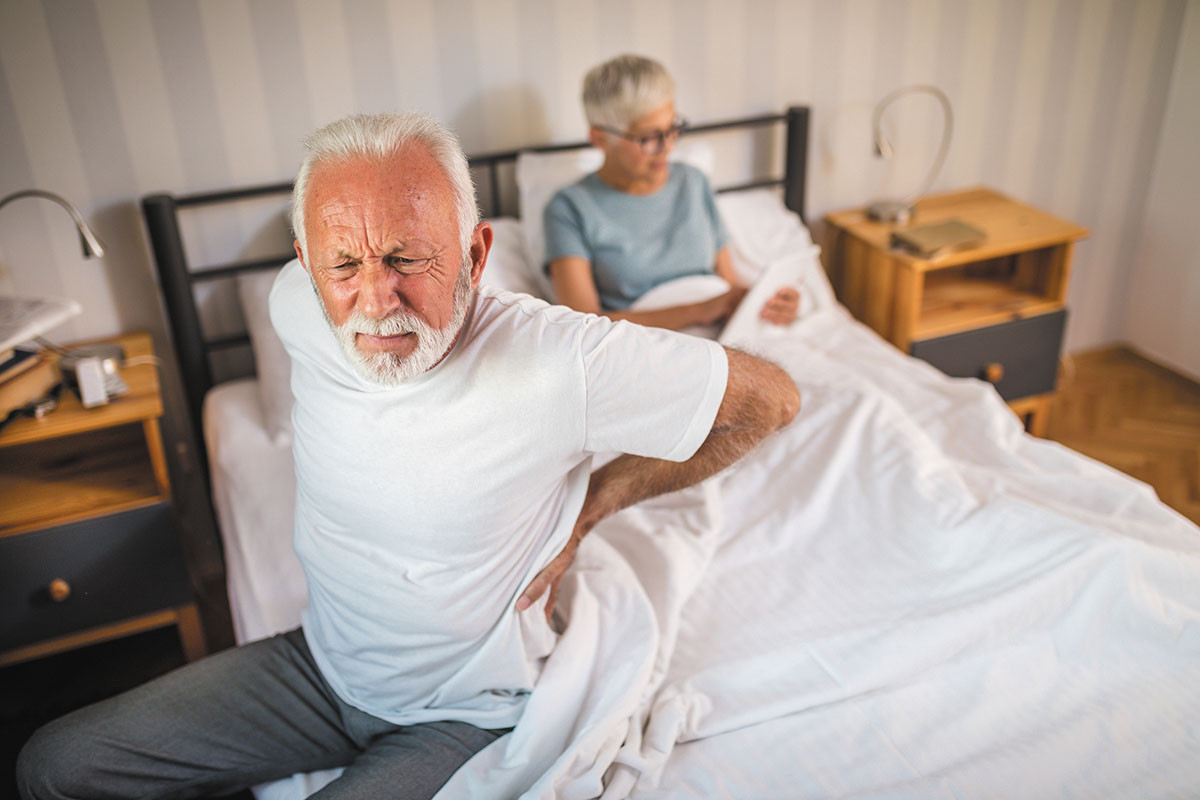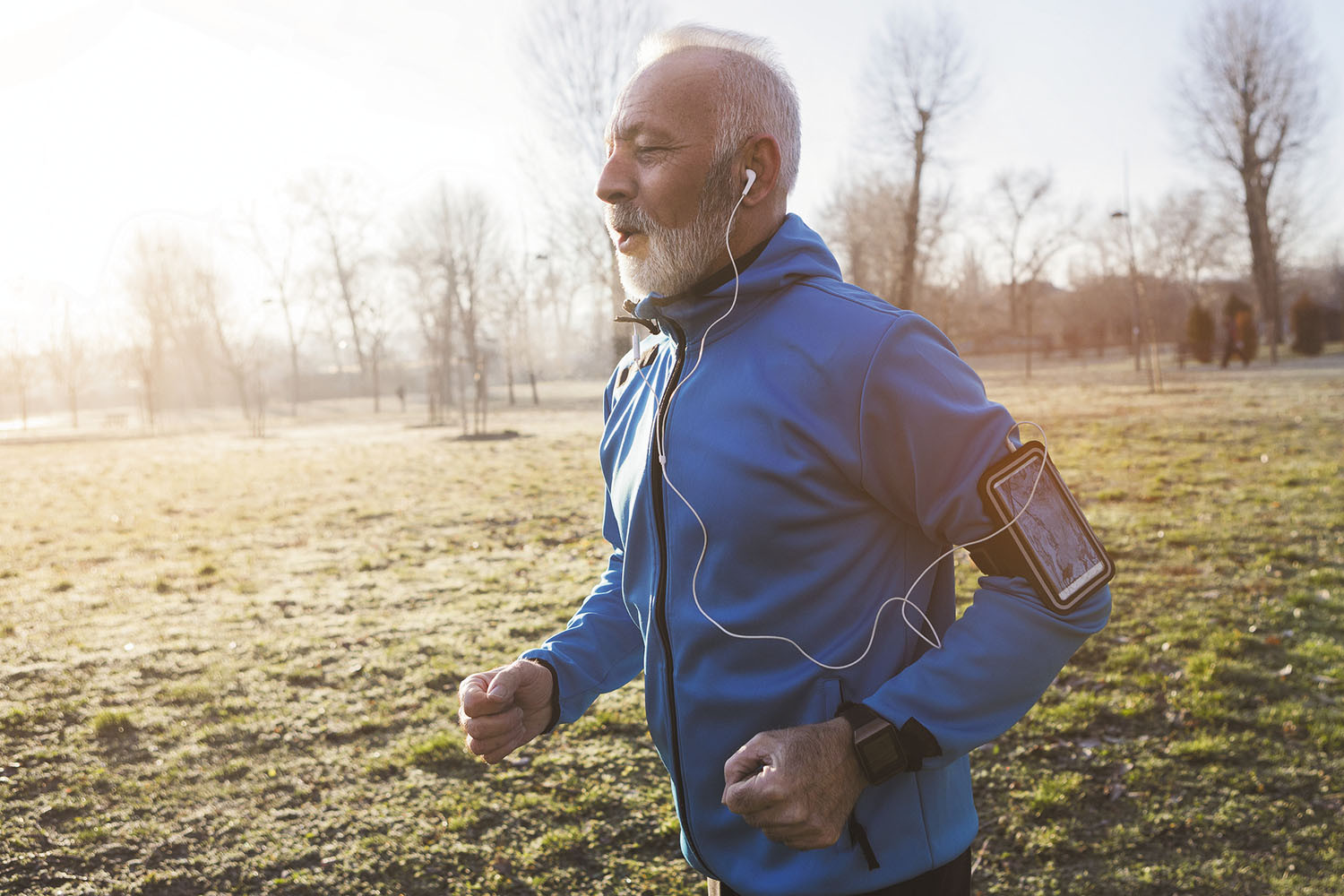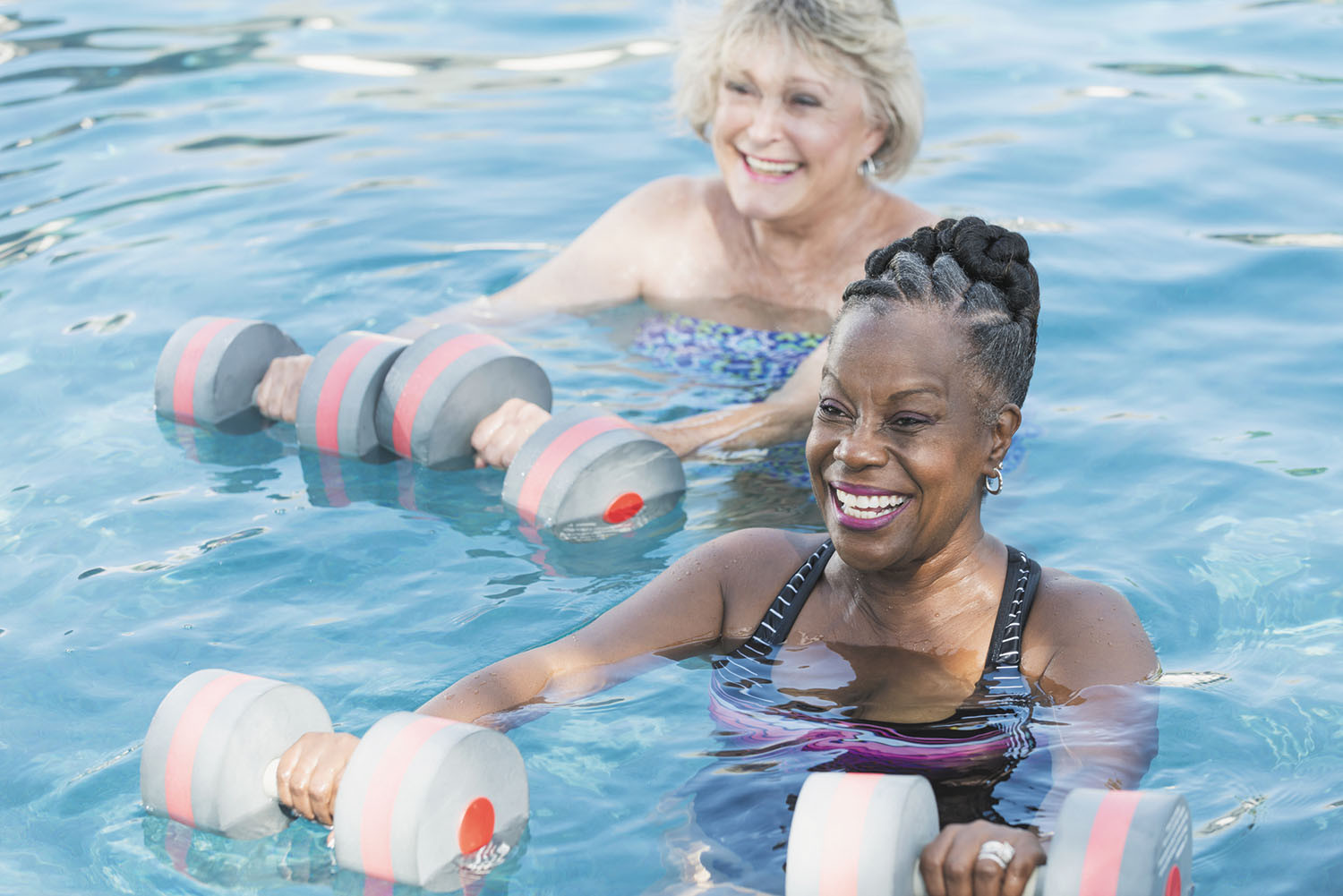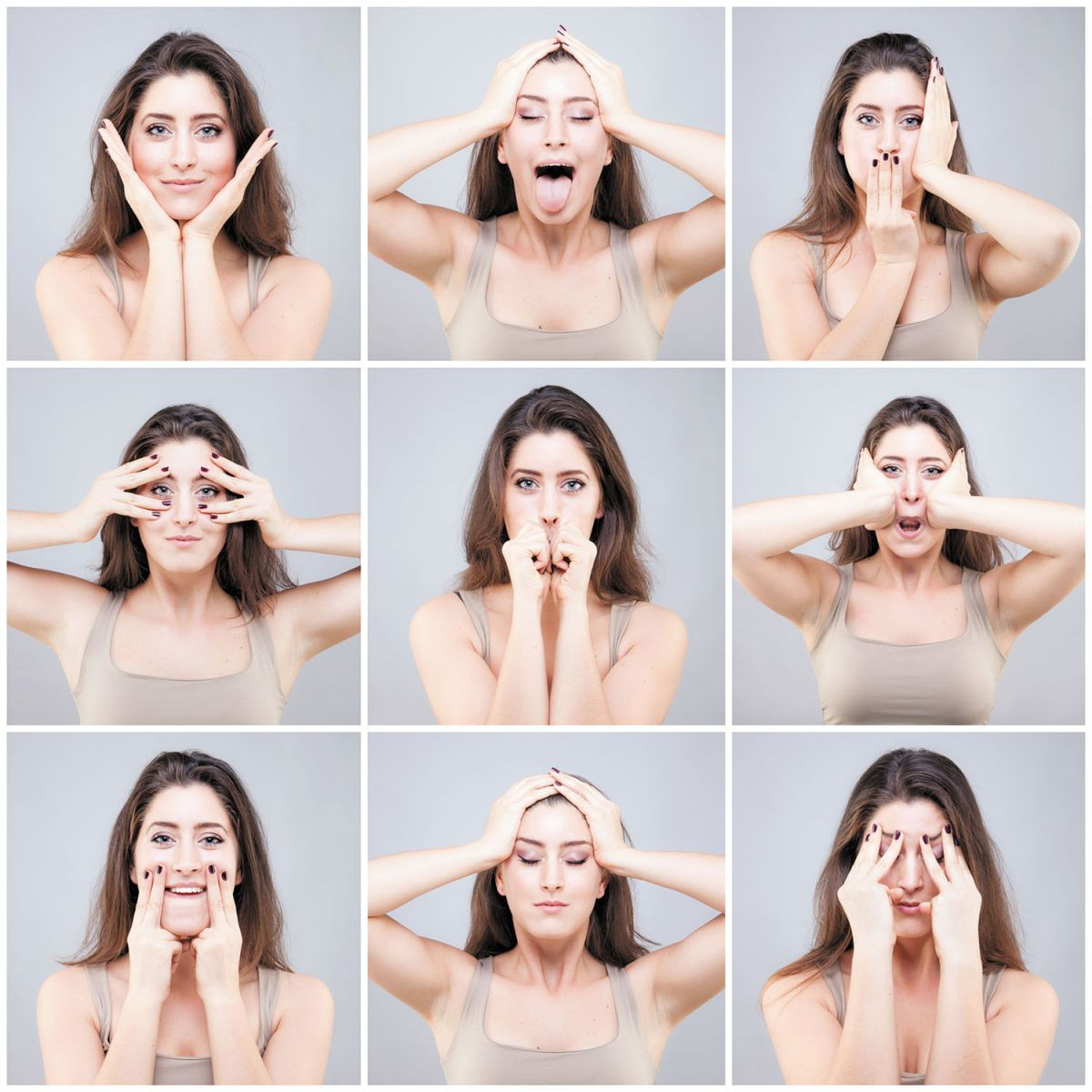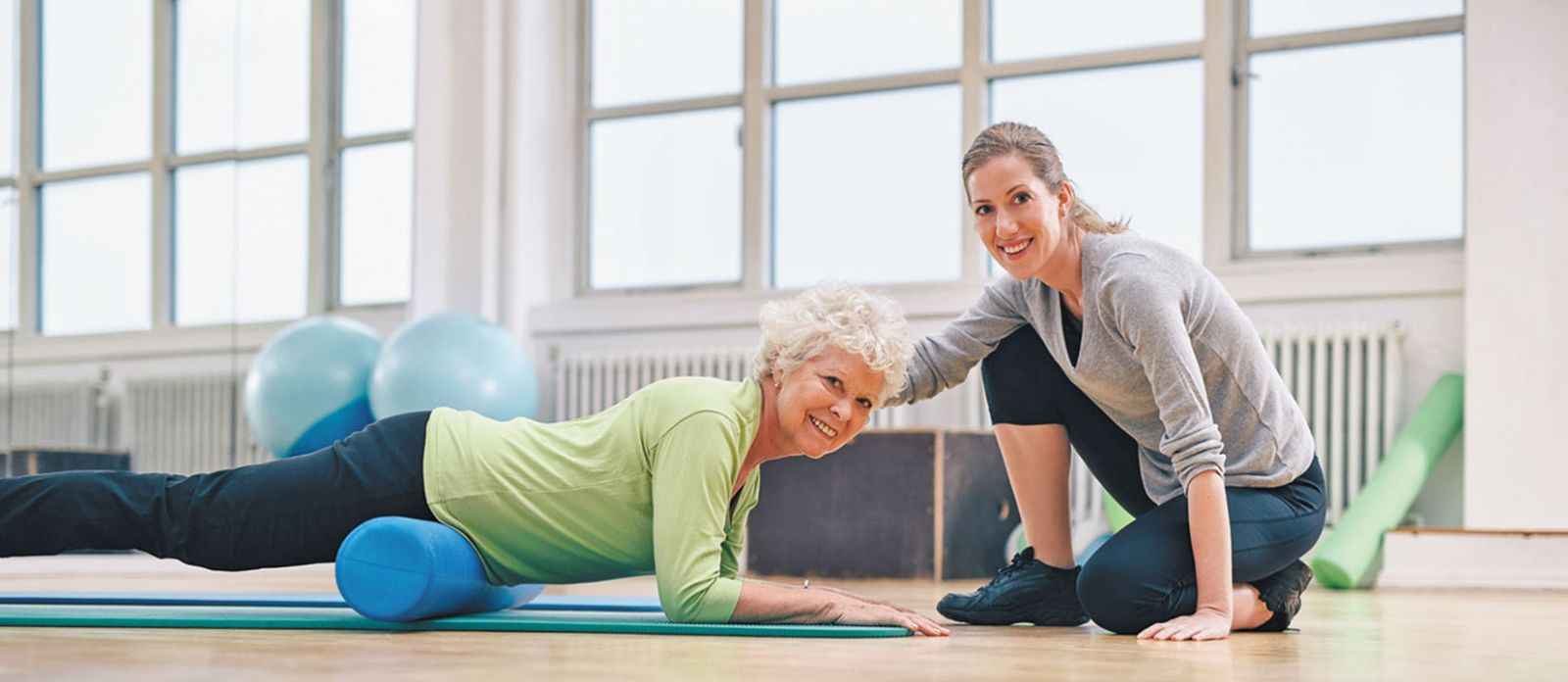
How does prostate cancer treatment affect mental health?

5 timeless habits for better health

What are the symptoms of prostate cancer?

Is your breakfast cereal healthy?

When pain signals an emergency: Symptoms you should never ignore

Does exercise give you energy?

Acupuncture for pain relief: How it works and what to expect

How to avoid jet lag: Tips for staying alert when you travel

Biofeedback therapy: How it works and how it can help relieve pain

Best vitamins and minerals for energy
Exercise & Fitness Archive
Articles
Greater fitness linked to a longer life
News briefs
Image: © Guingm/Getty Images
Some small studies have suggested that too much vigorous exercise might harm your heart, perhaps by triggering heart rhythm changes or other problems. New evidence allays this concern. In fact, the more fit you are, the longer you may live. For the study, researchers reviewed data from more than 122,000 people who underwent exercise treadmill testing from 1991 to 2014. Based on the findings, they divided the subjects into five performance groups: elite, high, above average, below average, and low. Elite performers — who had fitness levels comparable to endurance athletes — had the lowest risk of dying of any cause during the follow-up period, which averaged just over eight years. The survival benefit was most notable among people ages 70 or older and those with high blood pressure. According to the study authors, there does not appear to be an upper limit of fitness above which a survival benefit is no longer seen. They published their findings online Oct. 19, 2018, in JAMA Network Open.
Add stretches to your exercise routine
They can help you stay flexible and active enough to keep your heart in good shape.
It's no secret that as you age, your body becomes less flexible. Your muscles aren't quite as supple and your joints are little stiffer than when you were younger. As a result, getting regular, heart-protecting exercise may be more challenging.
That's why stretching — the deliberate lengthening of muscles to increase flexibility and range of motion — can be especially helpful after middle age. Yet many people are confused about the different stretching techniques and the best time to do them, says sports medicine physician Dr. Adam Tenforde, assistant professor of physical medicine and rehabilitation at Harvard Medical School.
Lessons from the masters
These master-level athletes can teach you how to stay fit and healthy.
Image: © Vesnaandjic/Getty Images
You're never too old to learn from the experience of others. For instance, master athletes in their 60s, 70s, and even 80s might compete at a higher level than you, but they still face the same age-related challenges.
"You can gain much wisdom from these individuals, such as how to exercise smarter, how to overcome obstacles, and how to stay motivated," says Dr. Adam Tenforde, assistant professor of physical medicine and rehabilitation at Harvard-affiliated Spaulding Rehabilitation Hospital. "They have developed strategies that can be adopted by the average person to help maintain health and reach specific goals."
Don’t be such a stiff
There are ways to keep morning stiffness from being a pain.
Image: © FluxFactory/Getty Images
Ever get that "old man" stiffness in the morning? You know the feeling: the dull, achy, and sometimes painful feeling in your joints — along with the customary grunts and groans — when you first stand and slowly move around.
"It's not known why this happens, especially as people age, but the only common thread is that it occurs after long bouts of inactivity," says Dr. William Docken, a rheumatologist with Harvard-affiliated Brigham and Women's Hospital. "That is why you often feel so stiff when you wake up, since sleeping is when you are inactive for the longest continuous time."
Thriving with localized prostate cancer
There's a lot you can do to improve your outcome if you're taking an active surveillance approach to your diagnosis.
Image: © Nastasic/Getty Images
About 90% of men diagnosed with prostate cancer have the localized kind, which means the cancer is confined to the prostate gland. And for many, a reasonable approach is active surveillance, in which men choose to monitor their cancer instead of going straight into invasive treatments, such as surgery or radiation therapy.
Active surveillance includes a doctor visit about every six months, most often with a prostate-specific antigen (PSA) blood test and digital rectal exam.
Regular exercise helps reverse age-related changes in your heart
Moderate workouts on most days of the week may be enough for heart-healing benefits.
Image: © kali9/Getty Images
Good news: If you've spent most of your life as a competitive master athlete who trains more than six days a week (in addition to competitions) your heart probably looks and performs like one that is much younger than its chronological age.
Doesn't sound like you? Don't worry, there's also some good news for the rest of us. Even if you've spent more time hanging out than working out over the past few decades, starting an exercise program in middle age might earn you a younger-looking heart too.
Does your face need a workout?
Facial exercises are being touted as a way to reverse signs of aging. A workout can't hurt and might even help. But there's little evidence of benefit.
Image: © Jasmina81/Getty Images
It used to be that women's magazines only gave fitness advice for your body. But today when you open the pages of many publications, you'll see advice on exercising not only your body, but your face, too. Articles tout strengthening exercises for the facial muscles — and even face yoga — as a way to slim and tone facial structures and help fight signs of aging.
Sounds great. But is it true? Should your workouts extend above the neck as well as below? And will those exercises really do anything for those wrinkles, sagging jowls, or double chin?
The wonders of winter workouts
Exercising in colder temperatures offers many advantages.
Image: © amriphoto/Getty Images
Even though the temperature has dropped, this doesn't mean you have to bring your workouts indoors.
"When it gets into the 40s and 30s, you can still enjoy your regular outside routines, like walking, running, and even cycling," says Dr. Adam Tenforde, an assistant professor of sports medicine and rehabilitation at Harvard-affiliated Spaulding Rehabilitation Network.
5-minute fixes for better health
Taking on a new health regimen can be daunting. Accomplishing smaller tasks that contribute to health may be easier to achieve.
You know what you're supposed to do: exercise daily, ditch junk food, get more sleep, and stay vigilant about every aspect of your health. It's a nonstop commitment that seems like a major undertaking if you've fallen behind. But putting off a healthy lifestyle increases the risk for developing chronic disease and jeopardizes your independence.
Rather than identifying big ways to improve your health, and then procrastinating, focus on small tasks that won't overwhelm you. Try a quick fix once in a while — or all the time if it applies. The more you do, the better you'll feel.
Should you add foam rolling to your workout routine?
Just a few minutes of rolling can help make your muscles more receptive to stretching and relieve muscle soreness, too.
Image: © jacoblund/Getty Images
Working out regularly will help you hold on to your flexibility, mobility, and independence. And using a simple tool may improve this grip on fitness by priming the muscles and making your workouts more effective.
The tool is called a foam roller. It looks like a fat tube or a bolster pillow for a bed. To use it, you slowly roll an area of your body — like your upper back, hips, or calves — back and forth across the top of the roller.

How does prostate cancer treatment affect mental health?

5 timeless habits for better health

What are the symptoms of prostate cancer?

Is your breakfast cereal healthy?

When pain signals an emergency: Symptoms you should never ignore

Does exercise give you energy?

Acupuncture for pain relief: How it works and what to expect

How to avoid jet lag: Tips for staying alert when you travel

Biofeedback therapy: How it works and how it can help relieve pain

Best vitamins and minerals for energy
Free Healthbeat Signup
Get the latest in health news delivered to your inbox!
Sign Up


